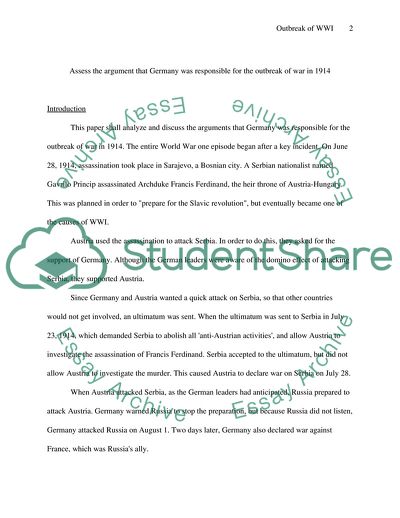Cite this document
(Assess the Argument that Germany was Responsible for the Outbreak of Thesis, n.d.)
Assess the Argument that Germany was Responsible for the Outbreak of Thesis. https://studentshare.org/history/1706048-assess-the-argument-that-germany-was-responsible-for-the-outbreak-of-war-in-1914
Assess the Argument that Germany was Responsible for the Outbreak of Thesis. https://studentshare.org/history/1706048-assess-the-argument-that-germany-was-responsible-for-the-outbreak-of-war-in-1914
(Assess the Argument That Germany Was Responsible for the Outbreak of Thesis)
Assess the Argument That Germany Was Responsible for the Outbreak of Thesis. https://studentshare.org/history/1706048-assess-the-argument-that-germany-was-responsible-for-the-outbreak-of-war-in-1914.
Assess the Argument That Germany Was Responsible for the Outbreak of Thesis. https://studentshare.org/history/1706048-assess-the-argument-that-germany-was-responsible-for-the-outbreak-of-war-in-1914.
“Assess the Argument That Germany Was Responsible for the Outbreak of Thesis”. https://studentshare.org/history/1706048-assess-the-argument-that-germany-was-responsible-for-the-outbreak-of-war-in-1914.


